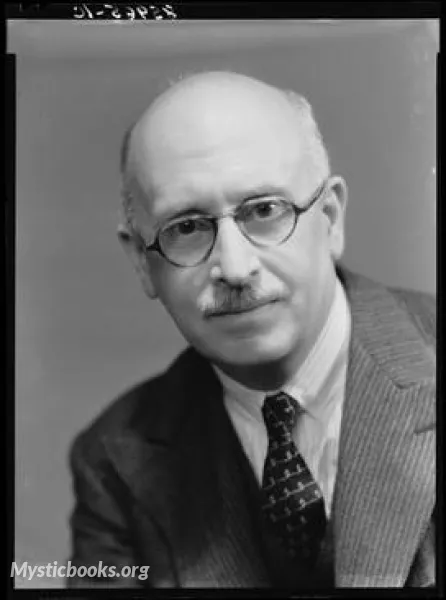
Timeline
Title
Country/Nationality
Freeman Wills Crofts
Freeman Wills Crofts, an influential Irish mystery author born on June 1, 1879, played a significant role in shaping the genre of detective fiction during the Golden Age of Mystery. Known for his meticulous plotting and compelling characters, Crofts crafted a body of work that captivated readers and established him as a celebrated author. This essay delves into Crofts's life, his principles, notable works, his philosophical approach to writing, his legacy, and intriguing aspects of the author's life.
Who Was Freeman Wills Crofts?
Freeman Wills Crofts was an Irish mystery author who gained prominence during the early 20th century. Born in Dublin, Ireland, he initially pursued a career as a civil engineer before transitioning to writing. Crofts's diverse background and technical expertise lent a unique perspective to his mysteries, often incorporating intricate details and procedural accuracy into his narratives.
Principles and Writing Style:
Crofts was known for his adherence to fair play and the "Watertight Alibi," a principle he believed to be integral to a well-crafted mystery. He placed great emphasis on presenting all the necessary clues to readers, allowing them the opportunity to solve the puzzle alongside the detective. His writing style was characterized by meticulous plotting, attention to detail, and a focus on logical deduction. Crofts's meticulous approach earned him a reputation as one of the finest puzzle plotters of his time.
Famous for and Notable Works:
Freeman Wills Crofts gained fame for his creation of Inspector Joseph French, a methodical and tenacious detective who featured in many of his novels. One of his most notable works, "The Cask," published in 1920, brought him critical acclaim and established his reputation as a master of the genre. Other notable works include "The Pit-Prop Syndicate," "Inspector French's Greatest Case," and "The 12.30 from Croydon." Crofts's novels were known for their intricate plots, strong characterization, and clever twists that kept readers engrossed until the final reveal.
Philosophy and Approach:
Crofts approached mystery writing with a scientific mindset, often drawing inspiration from his engineering background. He believed in presenting readers with a puzzle to solve, meticulously planting clues and allowing readers to engage in the detective's thought processes. His philosophy revolved around constructing tightly plotted narratives that adhered to the principles of logic and fairness, challenging readers to use their deductive skills to uncover the truth.
Legacy and Remembrance:
Freeman Wills Crofts made a lasting impact on the genre of detective fiction, contributing significantly to the Golden Age of Mystery. While his works were not as widely recognized as those of some of his contemporaries, his influence on subsequent mystery authors cannot be underestimated. Crofts's adherence to fair play and the intricate construction of his plots earned him the respect of fellow writers and readers alike.
Freeman Wills Crofts passed away on April 11, 1957. He is remembered as a key figure in the development of detective fiction, particularly for his contributions to the puzzle plot subgenre. His legacy lives on through his captivating novels and his enduring influence on the mystery genre, inspiring generations of authors to craft compelling mysteries that engage and challenge readers.
Interesting Aspects of the Author:
Beyond his writing career, Freeman Wills Crofts had a fascinating life. In addition to being a successful author, he served as a civil engineer and worked on various projects, including the construction of the Forth Bridge in Scotland. His engineering background influenced his writing, lending a sense of technical accuracy and meticulous attention to detail to his mysteries.
Conclusion:
Freeman Wills Crofts left an indelible mark on the mystery genre, with his meticulous plotting, adherence to fair play, and the creation of the iconic Inspector Joseph French. His legacy as a pioneer of the Golden Age of Mystery continues to captivate readers, challenging them to unravel intricately woven puzzles and engage in the thrill of deduction. Crofts's dedication to crafting compelling narratives and presenting readers with fair challenges ensures his enduring reputation as a master of the mystery genre. As readers delve into his works, they discover a writer who valued logic, precision, and the sheer joy of a well-executed puzzle.
Books by Freeman Wills Crofts
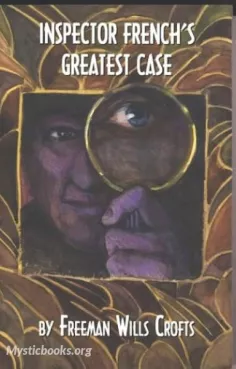
Inspector French's Greatest Case
In this, Freeman Wills Crofts weaves a tale of suspense, intrigue, and meticulous investigation that will leave readers on the edge of their seats. When a wealthy industrialist is found dead under suspicious circumstances, Inspector French is called...
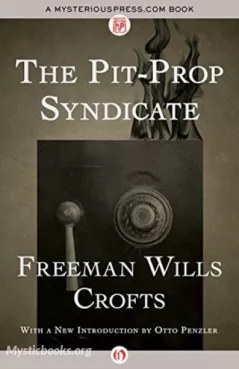
The Pit Prop Syndicate
A mysterious series of accidents in a coal mine leads Inspector Willis to investigate a sinister pit prop syndicate. The Pit Prop Syndicate is a mystery novel by Freeman Wills Crofts, set in the coal mining industry in England. The story follows Ins...
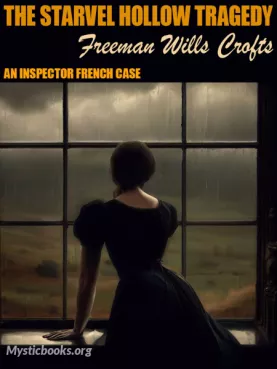
The Starvel Hollow Tragedy
Embark on a mysterious journey through "The Starvel Hollow Tragedy" by Freeman Wills Crofts, a tale that begins in the shadows of a chilling enigma. In the quaint village of Starvel, a tragedy unfurls, leaving the community in a state of disbelief an...

Cask
A cask containing statuary is damaged during unloading in London, revealing a surprise inside. Inspector Burnley investigates the mystery of the cask's contents, leading him on a thrilling journey of suspense and intrigue.
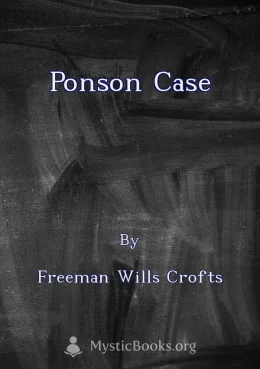
Ponson Case
The Ponson Case, a classic mystery novel by Freeman Wills Crofts, revolves around the disappearance of Sir William Ponson. When he is found dead in a river, it seems he drowned, but Inspector French, a meticulous and intelligent detective, suspects f...
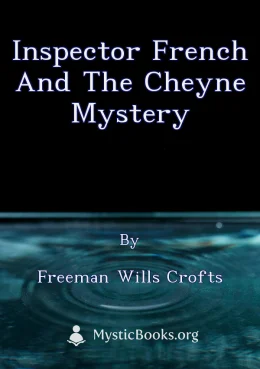
Inspector French and the Cheyne Mystery
In 'Inspector French and the Cheyne Mystery,' Freeman Wills Crofts presents a compelling tale of intrigue and suspense. Maxwell Cheyne, a seemingly ordinary man, finds himself at the center of a baffling mystery when he awakens after being drugged in...

Sea Mystery
In Freeman Wills Crofts' "Sea Mystery," Inspector French faces a perplexing case. A washed-up crate containing a murdered man's body washes ashore, leaving no trace of its origin or the victim's identity. With scant evidence and an ingenious crime, I...